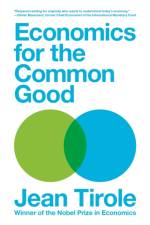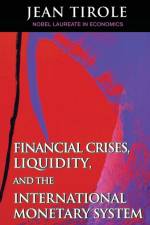av Jean Tirole
1 281
The past twenty years have seen great theoretical and empirical advances in the field of corporate finance. Whereas once the subject addressed mainly the financing of corporations--equity, debt, and valuation--today it also embraces crucial issues of governance, liquidity, risk management, relationships between banks and corporations, and the macroeconomic impact of corporations. However, this progress has left in its wake a jumbled array of concepts and models that students are often hard put to make sense of. Here, one of the world's leading economists offers a lucid, unified, and comprehensive introduction to modern corporate finance theory. Jean Tirole builds his landmark book around a single model, using an incentive or contract theory approach. Filling a major gap in the field, The Theory of Corporate Finance is an indispensable resource for graduate and advanced undergraduate students as well as researchers of corporate finance, industrial organization, political economy, development, and macroeconomics. Tirole conveys the organizing principles that structure the analysis of today's key management and public policy issues, such as the reform of corporate governance and auditing; the role of private equity, financial markets, and takeovers; the efficient determination of leverage, dividends, liquidity, and risk management; and the design of managerial incentive packages. He weaves empirical studies into the book's theoretical analysis. And he places the corporation in its broader environment, both microeconomic and macroeconomic, and examines the two-way interaction between the corporate environment and institutions. Setting a new milestone in the field, The Theory of Corporate Finance will be the authoritative text for years to come.



